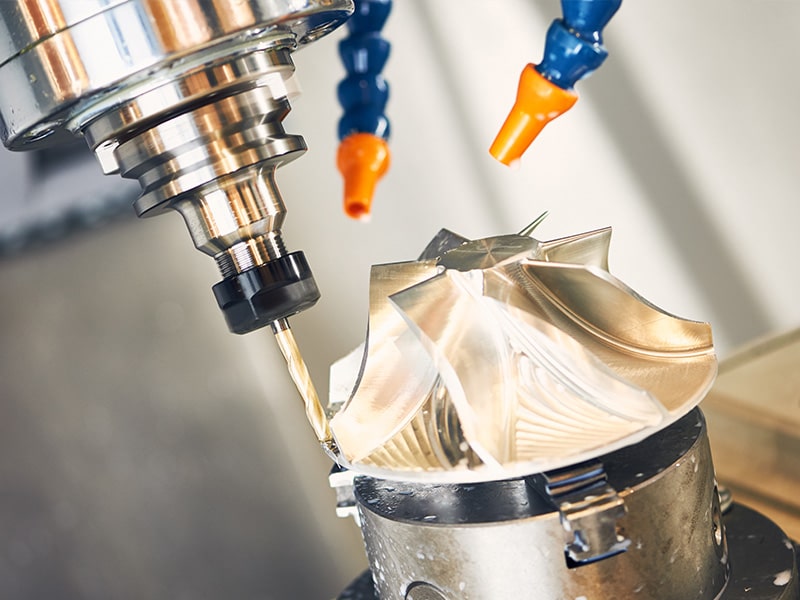CNC Machining Services: A Revolution in Precision Manufacturing
CNC-machined machining is among the most revolutionary technologies used in the modern world of manufacturing. It has fundamentally changed how companies make components and parts, offering a level of precision, efficiency, and versatility that is unparalleled by conventional methods. CNC machines use computerized controls and equipment to accomplish a variety of tasks such as cutting, milling, drilling, and grinding on materials ranging from metals and plastics to composites and wood. By automating the manufacturing process, CNC machining eliminates many of the inefficiencies and inconsistencies associated with manual operations. This results in a machine that can produce highly precise parts in a faster pace and in greater consistency driving innovation in industries such as aerospace and consumer electronics.
One of the major benefits of CNC machining is that it has the capability to produce highly detailed and complicated components that are nearly impossible to create using traditional manufacturing methods. CNC machines operate based on digital drawings, which implies that when a design is programmed in the machine, it can be produced accurately and in a consistent manner. This is particularly useful in fields like aerospace, automotive, and electronics where precision is essential. Additionally, CNC machining is capable of working with an extensive assortment of different types of material, ranging from soft plastics to tough metals. It allows companies to create parts that satisfy specific demands for strength, durability, and heat resistance. The wide range of CNC machine has created opportunities for design and engineering.
The efficacy of CNC processing is yet another major element in the widespread use of CNC. Traditional methods of machining require highly skilled workers to operate the machine, alter settings, and then change the tools to perform each task. It is not only lengthy, but is also vulnerable to human errors. CNC machining on the other hand, automates the process, which allows machines to continue running with the least amount of supervision. After a program has been set and the machine is equipped with the material needed the machine can run multiple actions without interruption, significantly shortening the production process. CNC machines can also be capable working 24/7, making them perfect for big production runs. This level of efficiency enables producers to meet strict deadlines, improve their output as well as reduce the cost of labor and all while ensuring high-quality standards.

CNC turning also offers excellent consistency, making sure that every product is exactly as the original model. This is crucial when industries require the huge quantities of standard parts, such as automotive and consumer electronics. Since CNC machines are programmed to follow guidelines, they are able to produce hundreds or thousands of components with very little variation in quality. The consistency of the product not only enhances the dependability of final product, but also helps reduce production waste since less parts have to be returned due to imperfections. In addition, as the digital designs used in CNC manufacturing can be easily altered or upgraded, companies are able to quickly adjust to any changes in specifications or demands of customers without the expense of Retooling or recalibration of the machine.
Apart from high speed and precise, CNC machining is valued for its cost-effectiveness, especially in large-scale production runs. When the initial setup and programing of the machine are complete, producing additional parts requires only minimal effort, which reduces the overall cost of production. Manufacturers working with costly material like aerospace-grade alloys CNC cutting down on waste is achieved by improving the process of cutting, which ensures that each component is produced with minimal loss of materials. Its precision and efficacy allow CNC cutting the perfect choice for prototyping as well as full-scale manufacturing, since it allows manufacturers to quickly test and refine designs, while keeping production costs manageable.
The future of CNC Machining is promising, thanks to technological advances constantly challenging the boundaries of what the machines are able to accomplish. As CNC machines become increasingly sophisticated, they’re more often integrated with other technologies that include 3D printing as well as robotics for the creation of hybrid manufacturing processes that bring together the best of different techniques. Additionally, the rise of smart manufacturing as well as manufacturing with the Industrial Internet of Things (IIoT) has led to greater communication and automated CNC machining, allowing machines to talk with one other and adjust operations in real time based on sensor data. As new technologies continue to progress, CNC machining will remain an essential tool in the advancement of manufacturing technology and will provide even more precision along with speed and adaptability for the coming generations of goods.
Post Comment